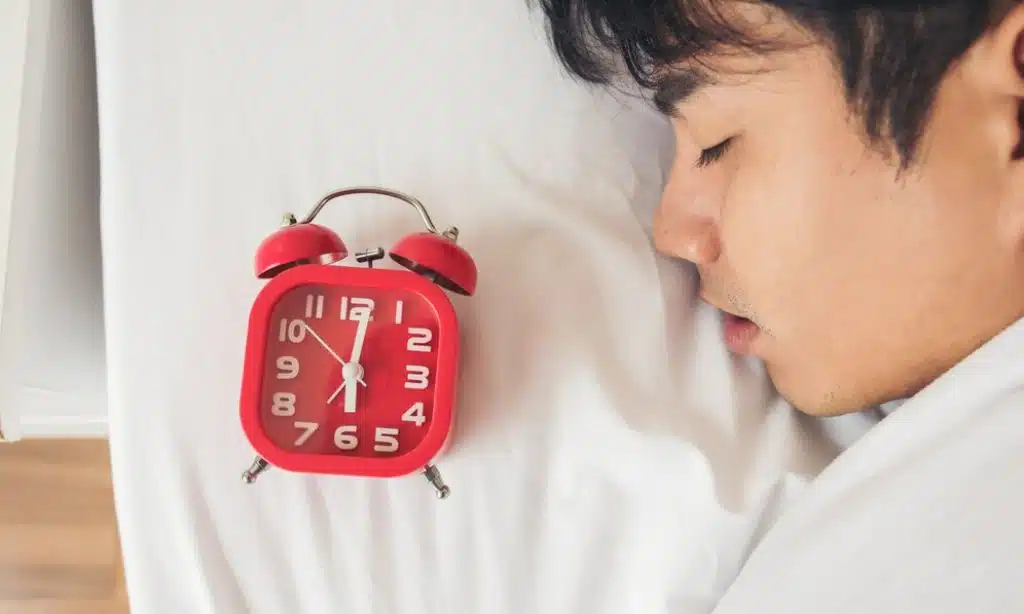Jet lag can turn an exciting trip into a challenging experience. It’s the body’s reaction to crossing multiple time zones quickly, disrupting the internal body clock, or circadian rhythm, which controls our sleep-wake cycle.
While it can take time for your body to adjust to a new time zone naturally, there are practical and scientifically backed ways to help reduce the symptoms and ease the transition.
If you’re heading on a short trip or need to function well right after arrival, these are effective tips to beat jet lag to enjoy the new time zone easily.
Effective Tips to Beat Jet Lag
Traveling quickly across time zones can cause jet lag, a temporary sleep disorder. Symptoms may include fatigue, difficulty concentrating, digestive problems, and disrupted sleep patterns. The good news? Your body will adjust in a few days or weeks, but these eight practical tips can help you feel more comfortable and alert in the meantime.
1. Adjust to Your New Time Zone as Quickly as Possible
One of the first steps in reducing jet lag is immediately aligning your schedule with the local time at your destination. Update your watch, phone, and other devices to reflect the new time zone before or as soon as you land. This quick adjustment helps your body adapt by getting you on a similar meal and sleep schedule to the local time.
For example, if you arrive in a destination with a significant time difference, avoid napping during the day and aim to eat meals in line with local customs. This shift can be especially helpful for those crossing more than three time zones since the adjustment period may be longer. Aligning your activities with the local time will help regulate your internal body clock more swiftly and alleviate the disorientation of jet lag.
2. Plan and Manage Your Sleep Schedule
Sleep is crucial in overcoming jet lag, and managing it starts even before your flight. Depending on your destination, consider shifting your sleep and wake times gradually in the days leading up to departure. Try going to bed and waking up one or two hours earlier if traveling east, or later if heading west.
Once on the plane, it’s helpful to rest or sleep during the local nighttime hours of your destination. Pack travel essentials like noise-canceling headphones, earplugs, an eye mask, and a comfortable pillow to help you rest well. If your flight lands during local daylight hours, resist the urge to nap upon arrival, as it may further disrupt your body’s adjustment process. If you must nap, keep it short (no more than 15–20 minutes) to prevent sleep difficulties later on.
3. Stay Hydrated
Long flights and rapid time zone changes can lead to dehydration, which exacerbates jet lag symptoms like headaches and dizziness. Staying hydrated supports your body’s overall function and can make adjusting to a new time zone smoother.
Carry a refillable water bottle through security and fill it up after. Many airports now have hydration stations, so there’s no need to rely on tiny cups of water during the flight. Avoid alcohol and minimize caffeine intake, as both can lead to dehydration and make it harder to sleep.
4. Eat Small, Balanced Meals
Digestive discomfort is another common symptom of jet lag, partly due to changes in meal timing and dietary habits during travel. Eating smaller, balanced meals can help keep your digestion in check while your body adjusts.
The Centers for Disease Control and Prevention (CDC) recommends lighter meals to reduce the likelihood of stomach issues when adjusting to new time zones. Although studies on the exact relationship between meal size and jet lag are limited, lighter meals are often easier for the body to process and may help you avoid feeling sluggish or bloated. Aim to eat according to the new local schedule as soon as you arrive, and choose foods that are easy on the stomach, such as fruits, vegetables, and lean proteins.
5. Use Light Exposure to Reset Your Internal Clock
Light is a powerful factor in regulating the body’s circadian rhythm. Your exposure to sunlight or bright light plays a critical role in helping your body adjust to the new time zone. Daylight signals to the body that it’s time to be awake, while darkness triggers the release of melatonin, a hormone that promotes sleep.
When traveling east (e.g., from New York to Paris), avoid bright light exposure in the morning to help your body adjust. Try wearing sunglasses until the new local wake-up time arrives, then gradually expose yourself to natural light. Conversely, when traveling west (e.g., from Europe to California), seek out morning sunlight to help your body adapt to the later time zone.
Adapting your light exposure on the first day can significantly influence how quickly you adjust. After the initial day, try to get plenty of morning light if you’re eastbound or afternoon light if you’re westbound. This approach gradually helps your body synchronize with local time.
6. Use Caffeine in Moderation
Caffeine is a useful tool for staying alert and focused during the day after arriving in a new time zone. Research shows that consuming around 300 mg of slow-release caffeine can help combat drowsiness, particularly when traveling eastward.
However, moderation is key. While caffeine can provide a temporary boost, excessive intake can interfere with your ability to fall asleep when needed. Enjoy a moderate amount of coffee or tea, but try to avoid sugary drinks and energy beverages that can lead to a quick crash. Stop consuming caffeine in the late afternoon or evening to prevent sleeplessness at bedtime.
7. Create a Comfortable Sleep Environment
A comfortable sleep setting can significantly impact how well you rest, especially in an unfamiliar environment. Check the temperature of your hotel room or sleeping space, and aim to keep it cool for optimal rest. Block out any ambient noise by using earplugs or a white noise machine if needed.
Consider packing a few items from home, like a small pillow or blanket, to bring familiarity to your new surroundings. The consistency of a few familiar sleep items can make it easier for you to fall asleep and stay asleep in a new time zone.
8. Consider Using Melatonin Supplements
Melatonin is a hormone that the body produces naturally in response to darkness. It signals the body that it’s time to sleep, making it a potential aid for jet lag. If your body isn’t feeling sleepy at night in the new time zone, taking melatonin supplements may help ease you into the local sleep schedule. Similarly, if you’re waking up too early when traveling west, a small dose of melatonin in the early morning might help you go back to sleep.
Before taking melatonin, consult a healthcare provider to ensure it’s safe for you. Melatonin can interact with certain medications, so it’s important to get personalized advice. Studies on melatonin’s effectiveness for jet lag vary, but many travelers find it helpful in adjusting their sleep-wake cycle when used short-term and under medical guidance.
How Long Does It Take to Recover from Jet Lag?
The general guideline is that it takes about a day to adjust for every time zone crossed. So, if you travel across five time zones, expect around five days to feel fully adjusted. Each person’s body responds differently, and factors like age, lifestyle, and travel direction can influence the length of recovery. These tips can help reduce the adjustment period and improve your travel experience.
Can Jetlag Be Prevented?
Preventing jet lag entirely may not be possible, but you can prepare your body in advance to make the transition smoother. For example, gradually adjust your bedtime and wake time by one or two hours over several days before your trip to more closely align with your destination’s schedule. This is especially helpful if you’re traveling east, as it allows your body to adjust to an earlier bedtime incrementally.
If you have a major event or meeting soon after arrival, consider arriving a day or two early to give your body time to adapt. The extra time can make a significant difference, allowing you to feel more refreshed and alert for your important occasion.
Takeaways
Jet lag is a natural reaction to rapid time zone changes, but by taking proactive steps, you can help your body adjust more smoothly. Adapting to the local time, managing your sleep schedule, staying hydrated, and using caffeine and light exposure strategically can make a real difference in your travel experience.
If you’re considering supplements like melatonin, remember to talk to a healthcare provider first. With these tools, you can minimize jet lag’s impact, stay energized, and fully enjoy your destination. Safe travels and happy adjusting!







































